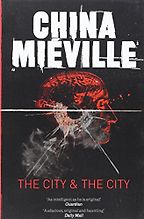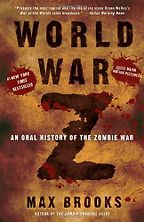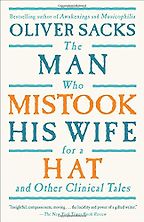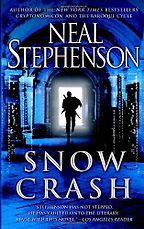In the introduction to your book you jokingly refer to neuroscience as a panacea, a subject that makes the humanities redundant. What are the dangers when people actually believe this?
As a scientist, I really do believe the scientific method is quite powerful for explaining the world but — at least for the foreseeable future — it is not very good at discussing the human condition. So I think the strength of the arts and the humanities is its ways of discussing the human experience and I hoped to pick up on this in my book choices. The Master and Margarita isn’t exactly a scientific book. When you’re looking at how people interact, the suffering, the pain, strife, love and all those crazy things, neuroscience doesn’t really have answers about that. That’s what we’re getting at in the introduction to our book.
A neuroscience of love, for example, what does that even mean? Can you really reduce something as complex as love — about which untold numbers of stories and poems and songs and music have been written — to the density of some neurotransmitter in a brain region? Personal experience tells me, no. And from a scientific perspective it also doesn’t really make sense, because we don’t really have a good definition of what love is. And so, if you can’t operationalise things in a scientific way, if you can’t come up with a solid strong definition for the thing you’re studying, then you’re not really studying a thing.
A theme that connects your books is sight and perception, and how the external world isn’t really fixed and absolute. Is reality — externally to us — much odder than we realise?
The way that I would frame it would be to say we are not as attentive as we think we are. Whenever I give talks, I have some examples where I show in seconds how much tricking you your brain does in everyday perception. One example is a seven word sentence that I filter so it’s hardly intelligible. People can hear two words. I play it, then I play the unfiltered sentence which people can hear perfectly. Then I play that original filtered sentence again, and everyone hears that perfectly. You use your memory to fill in all that missing information. Even more crudely, I think everybody knows we have a blind spot in our eyes. Your optic nerve leaves the back of your retina, and at the place where it leaves the back of your eye there are no photo receptors, because the nerve carrying the information to your brain is blocking the ability for any receptors to be there. So we have this rather large hole in our visual field that we never notice until we do one of those blind spot tests. The brain is filling in that information.
“Can you really reduce something as complex as love to the density of some neurotransmitter in a brain region.”
I don’t think it’s controversial to say that our experience of external reality is not as tied to external reality as we like to think it is. And this has major implications in a number of domains. Most notable would be eyewitness accounts in legal proceedings. You can even trick people into believing they’ve committed a crime. There’s also a very interesting interface between stage magicians and neuroscience and a popular paper was co-written a few years ago in a scientific journal by a group of perception and attention neuroscientists and stage magicians. This is what got me into neuroscience in the first place: that our experiences of the world are not necessarily a true reflection of the world.
Let’s talk about The Master and Margarita. This didn’t strike me as being particularly linked to the brain. How does a neuroscientist read this book?
I read this book in my late teens, before I was a neuroscientist. I have a soft spot for supernatural tales, and — oddly for an atheist — Judeo-Christian extreme stories, by which I mean angel-devil, fallen one stories. A lot of these take a Manichean point of view: light and dark, good versus evil. In the West this is heavily filtered through that Judeo-Christian lens. The Master and Margarita is brilliant, not only for its interweaving of past and present and linking of different timelines with the Pontius Pilate story, but also the complexity of the relationship between good and evil in it. You really feel for the evil characters — you find yourself backing them completely in their worst actions. The Rolling Stones song ‘Sympathy for the Devil’ was heavily inspired by The Master and Margarita. It’s a beautiful commentary and reflection on questions like ‘what are we doing in our lives, why are we here?’
So this is about perception and our understanding of our place in the world, and the sort of stories we filter that understanding through?
Our interpretation of that story is heavily filtered by the culture in which we’re raised. You take someone who isn’t raised in the Judeo-Christian culture and have them read that book and they’re going to have a totally different perspective on it. A lot of the allusions and allegories in it won’t even make sense. That’s something that fascinates me — how the culture in which we’re raised affects our brain development and our perceptions and interpretations.
Talking about how cultural conditioning changes our perception of things seems a good bridge to China Miéville’s The City & the City.
There’s a phrase I once heard, ‘every story has one buy.’ There’s one totally ridiculous thing that readers have to buy into. The author doesn’t usually get more than one buy, and their story and their world have to be internally consistent with that one ridiculous thing. In The City & the City there is a supernatural force that comes in and yanks people out of reality if they break the rules of the mutually agreed upon imperception of the overlapping cities. It’s completely ridiculous, but Miéville builds the entire world around it and it’s internally consistent.
Do you want to explain the concept of the book?
The basic idea is that you’ve got these two warring factions within a city. It’s been decades, maybe hundreds of years, but at some point the two different factions within the city had a treaty and they agreed to coexist and continue living in the same city. But they agreed to never, never pay attention to each other. So the citizens are part of the same physical world, but they live in two different perceptual worlds. They share the same roads, they live in the same buildings, but they have all agreed not to pay attention to each other. That active not-paying-attention is actually active. If you’re driving down a road and you have to swerve around a car that belongs to a citizen of the other faction, you cannot reflect upon, or even think about, why you just swerved round. You have to trick yourself into thinking that you moved out of the way not to actively avoid something, but just because. Actively noticing that you had to avoid the citizen from the other city is, in itself, noticing a citizen from the other city and that will call down upon you this supernatural force that will punish you for having paid attention to them.
The overarching narrative of the story is a murder committed in one part of the city, in this one faction. A detective from the other faction has to try and investigate this murder — in a place that he’s not even allowed to pay attention to. It’s amazing. For me, it’s a very impressive reflection on how we perceive the world around us.
I was wondering how this concept of unseeing would work from the point of view of neuroscience. When the detective sees the two cities together for the first time, it’s an overwhelming physical shock for him. Could you train your mind not to see a thing?
It’s a little tricky. I wrote a paper for a literary conference on this book and whether or not you could ‘unsee.’ It was interesting going into a science-fiction conference as a neuroscientist and trying to teach people the neurological mechanisms of attention.
The best analogy I could give is from the point of view of hearing and language. We know, in mammals at least, that our auditory cortex — the part of our brain that first receives information from the ear about the sounds that you hear — is organised tonotopically. High frequency tones enter the auditory cortex in one part and then, as the frequencies get lower and lower, they are represented progressively further forward. That’s part of the way we think the brain decodes sounds: the neurones that represent those sounds — or the brain cells that respond to those sounds coming in — prefer different parts of the brain. So, if you take a rat, and you raise it in an environment where one tone or one frequency is overrepresented and you have a look at what happens in that rat’s brain, at its auditory cortex, the amount of brain dedicated to representing that frequency is way higher than in a rat that is raised in a normal environment. So the brains of animals raised in environments with different kinds of perceptual statistics develop in response to that.
Get the weekly Five Books newsletter
Some people have followed up on this to see if it is true that one of the reasons that native English speakers can’t hear tonal differences in Chinese is because our brains can’t hear them. Similarly, let’s say you play the guitar. You pick the strings with your right hand and you fret with the left hand. The amount of brain area devoted to your left finger movements is much larger.
In The City & the City they really don’t notice each other anymore and I would argue this isn’t actually horribly crazy or out of line with how we know the brain works. If you’re raised in a culture where you’ve been trained to not notice people wearing certain colours and dressing in certain ways and walking in certain ways — which is how they identify one another in the book — then you might lose the ability to actually pay attention to them or see them. We wouldn’t really ever have a way to test this. In reality, I don’t think that that is how the brain works. That is the buy in the book. All these things I’ve been talking about are fundamental low-level sensory processes, like hearing and movement, which are different from more cognitive processes like attention and memory. But it’s still in line, generally, with what we know.
Moving on to World War Z. You’ve got this line in your book where you say that the great thing about the zombie genre is that “it’s a blank slate upon which a writer can project any number of big unfathomable societal and psychological fears and concerns.” What are the concerns projected onto zombies by this book?
Culture. World War Z is told from multiple different perspectives and multiple different cultures. It’s about how they respond to the impending apocalypse: what the Americans do and what happens in the Middle East, how individuals respond. So you have a couple of people who are already preparing for the end of the world and you’ve got the military view. It’s great because Max Brooks really pulls together this multi-cultural viewpoint, it’s not just a Brad Pitt action-movie vehicle.
It’s subtitled ‘an oral history of a zombie war,’ and is based on another book, The Good War: An Oral History of World War Two. I wanted ask how far Brooks goes in making this scenario seem plausible, and does that make it more surreal?
In some ways this goes back to the Manichean ‘light and dark’ conversation. It’s interesting that the allusion to World War Two intermixes with zombies. There’s a celebration in American culture of World War II because there was a clear bad guy. Just like in the zombie movies, where there are the people who are trying to eat you and there’s not much of a grey area. It’s ok if you shoot a zombie in the head.
There’s something really weird about the fact you can only get them through the head – like you’re smashing their face: what’s most apparently human about them even though they’re undead.
It’s not like a stomach shot. It’s the most viscerally unsettling way of killing them, their identity, their personhood, their face — you have to kill it.
Why did you pick The Man Who Mistook his Wife for a Hat?
That was another really transformative book for me. Oliver Sacks is a beautiful storyteller, but he’s also a neurologist and these are real patients that he saw, with real symptoms. And with some of these patients the mind boggles — those that can’t see faces, or think their loved ones have been replaced by robots. We don’t know how this happens in the brain, all these different maladies and disorders, but we know quite a number of them. We know generally how and why they come about and it’s just wild to me that this can happen. I can’t imagine one day waking up and not knowing who my wife is, or seeing my wife and thinking that she was replaced by some sort of clone or robot. But it could happen to any of us…
To what extent do the conditions described tell us about how our brain works?
That’s something we look at in our book a lot. Our preface is an attempt to pay homage to the idea that a lot of what we know about how the brain works first came about by looking at injury: when someone has a specific brain malady, or trauma, or wakes up after a stroke and are unable to speak, or they can talk but they can’t understand language, or they suddenly can’t see one part of their visual world. For me, one of the most interesting ones is a disorder called hemineglect, where you lose the ability to pay attention to the left side of space. You just forget that the left side of the world exists. If you ask someone with hemineglect to draw a clock, they will cluster all of the numbers 1 through 12 on the right side of the clock face. And these things tell us something very fundamental about how we pay attention to things in our visual world, how we speak, how we understand. Engineers will tell you that they’ll take something apart and try to put it together again. We obviously can’t do this with brains and minds, but when something breaks it does tell you something about how it works.
Which alternative worlds are stranger here: the world of the mind, or the fictional world?
For me, Sack’s book is more interesting because it’s real. There is no buy – going back to the idea of believability – it seems like the author is asking too much of you, he’s pushing your credulity to the limits, but it’s all real.
Snow Crash takes place in a fictional future saturated by technology and corporations. I wanted to ask you about what looks like, and what looks unlike, what’s going on now.
A general overview of the plot is that there’s a computer virus that can also jump into being a biological virus but only for people who are hackers, people who natively speak binary computer code. The computer virus creates a ‘snow crash’ which is like white noise, a static image on computer screens. But it’s actually not white noise, all the black and white dots in the snow crash are representing binary 1s and 0s and if you speak binary then your brain is automatically interpreting those 1s and 0s, which is running code on your brain and hijacking your mind. Again, it’s a totally ridiculous science fiction buy. But it’s not too crazy. A thing like that almost certainly can’t exist, but it’s not so far out of the realm of what the brain does. As a neuroscientist, it doesn’t make me want to throw the book on the ground.
“Our experiences of the world are not necessarily a true reflection of the world.”
The technological aspect is interesting and amusing. The CIA has become a for-profit company in the future. One of the things I like about Snow Crash is that it’s not really a dystopian future, it’s just a mildly annoying future. People are making bad decisions, there are lots of really silly people, the world is kind of ridiculous in terms of where it’s gone. The Mafia has become a semi-respectable business organisation. Nothing is too outside the realm of plausibility and everyone is still fallible. I love it.
My last question is about the Internet and the supposed short attention spans it encourages that are causing our brains to change. Are we being zombified by the Internet?
There’s two answers to this. The first is that it’s trivial to say the Internet is changing our minds because everything is changing our minds. This conversation you and I are having? I am rewriting your memory right now, and vice versa. That’s having a physical effect on the neurones in your brain, new synapses are being formed. That is precisely what memory is. That is what the human experience is, our brains are rewiring with every experience that we have. So in a very trivial sense it’s true, but it’s not really meaningful.
The second is that supposedly Socrates was going around lamenting how the written word was ruining people’s memory because you no longer have to keep track of conversations when you can write down the information. So two thousand years ago people were arguing that writing was fundamentally eroding our culture and our sense of personhood. And yet, here we are. I believe in the fundamental adaptability of humanity. We find a way to make a good out of whatever situation we find ourselves in. So, there’s a lot of garbage on the internet, but at the same time it’s an incredibly powerful tool for science and medicine and research and art. I tend to not buy into that fear-mongering.
People talk about how the medieval mind remembered everything it read in the absence of many books and so encyclopaedic memories were valued in the way we value creativity now. But I think having to memorise absolutely everything you read would be rubbish!
It frees us up for doing other things, right? In one of my classes I try to teach my students Google-fu, because I don’t think people need to be memorising every single detail, every single fact, about whatever it is they may be learning. You should have broad-swathe understandings of how different concepts relate to one another, both temporally and conceptually. But I can pull out my smartphone and look a fact up in ten seconds. Not having to remember every single detail we learn frees us up to be at a higher level, more creative.
That said, I still believe that there are things that you just fundamentally have to know…
Five Books aims to keep its book recommendations and interviews up to date. If you are the interviewee and would like to update your choice of books (or even just what you say about them) please email us at [email protected]
Five Books interviews are expensive to produce. If you've enjoyed this interview, please support us by donating a small amount.










